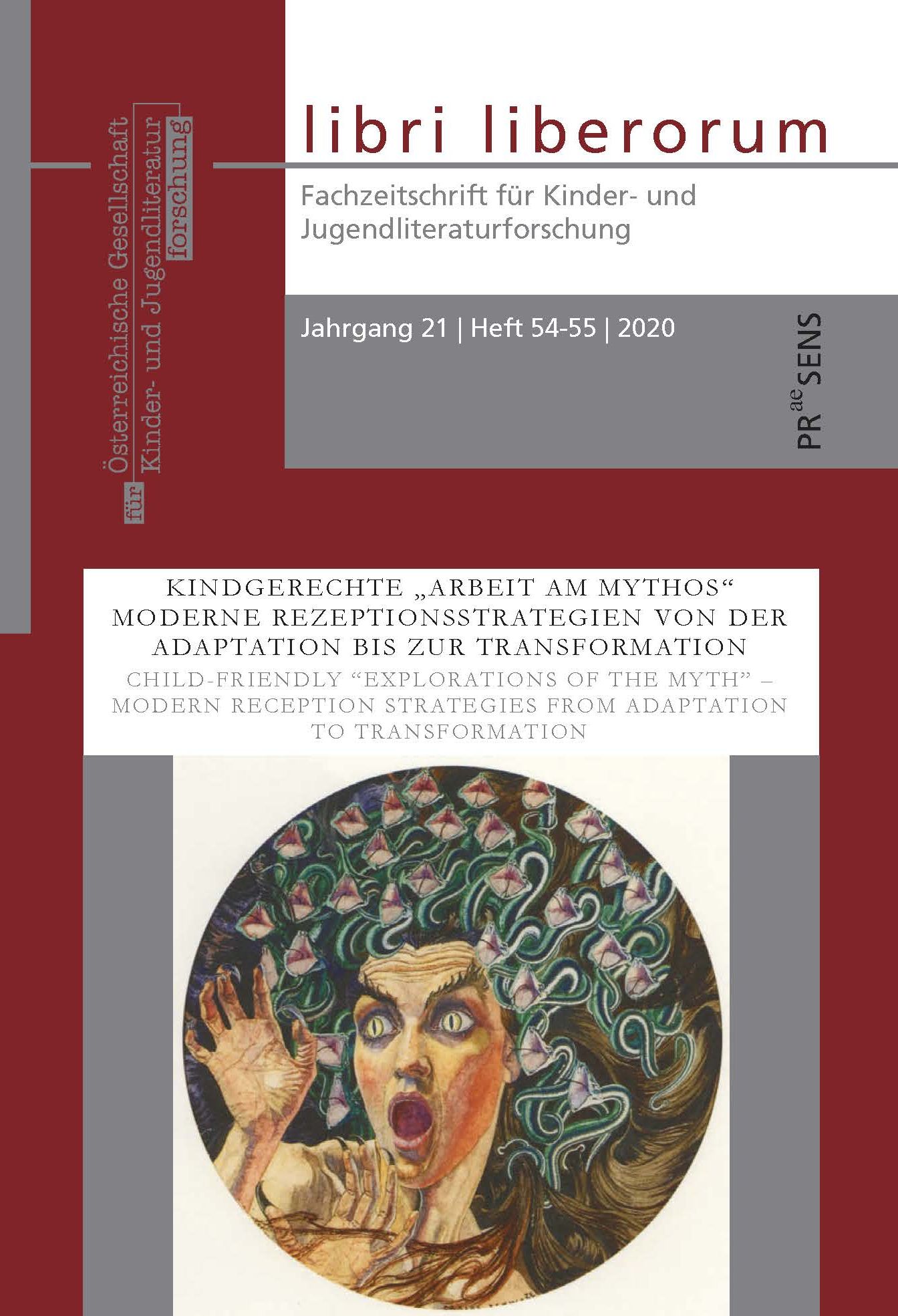Metamorphoses of Medusa: The Reception of the Gorgon in 21st-century Culture for Children and Young Adults
Keywords:
gorgoneion, Medusa in 20th/21st-century retellings of Greek myths, motif of turning into stone, reception of the Perseus and Medusa myth in Clash of the Titans (1981 and 2010); Medusa, hair, agency, children, children’s literature, dual audience, classical reception studies, mythology, monster, family, identity, control, socialization, Joan Holub, Leslie Patricelli, Suzanne Williams; acceptance, gods and goddesses, friendship, Medusa, monster, Olympian pantheon, preadolescence, transformation, Joan Holub, Suzanne Williams; Gorgoneous families, male Medusa, coming of age, attractive monsters, teenagers, meaning of true love and friendship, Legacies, Monster High; Atlantis, curse, friendship, Hercules, Jason, love, Medusa, monster, sacrifice, prophecy, Pythagoras; age, fairy tale, Mère Méduse, Kitty Crowther, monster, motherhood, old adults, Percy Jackson, Rick Riordan, witchAbstract
This text has been prepared within the project Our Mythical Childhood... The Reception of Classical Antiquity in Children’s and Young Adults’ Culture in Response to Regional and Global Challenges, which has received funding from the European Research Council (ERC) under the European Union’s Horizon 2020 Research and Innovation Programme under grant agreement No 681202, ERC Consolidator Grant (2016-2021), led by Katarzyna Marciniak, Faculty of “Artes Liberales”, the University of Warsaw.
Medusa is one of the best known mythical creatures, a monster par excellence. Ancient literature transmits two versions of her story – a primordial being from pre-Olympian times (Hesiod, Theogony 270-285) and a young woman who was raped by Poseidon in Athena’s temple and punished by being transformed into a hideous beast for what the goddess presumed was a dreadful sacrilege (Ovid, Metamorphoses 4,753-803). Down through the millennia of classical reception, Medusa appeared mainly as a killing monster to be defeated by the hero on his “Campbellian” journey to glory (Campbell 2004). Then Hélène Cixous listened to her voice as that of a victim – with a particular focus on her womanhood – and made Medusa an icon for generations of women who suffered innocently due to a range of societal factors (Cixous 1976).
Is a similar reversal of perspective also valid in the culture for a young audience? Does this culture feature Medusa simply as a monster, or rather as a victim? Or perhaps there are more roles for her still? We have attempted to answer these questions by taking as our starting point an analysis of Medusa’s reception in two movies – namely, Clash of the Titans, the original from 1981 and the remake from 2010. This analysis reveals characteristic traits of her image as encoded in the 1980s, a period of particular importance for the development of popular culture, and compares them with the representation transformed into a believable 21st-century protagonist and following the demands of a 21st-century audience. The study of the Medusa characters in the two Clashes is interspersed with an overview of the most relevant ancient sources and the contemporary narrative both by scholars and popularizers of Classical Antiquity.
Then, we propose a short survey of selected, mostly globally accessible works. Each is dedicated to a specific stage of Medusa’s life. First, we meet a child taking her first steps in the world (the picture book Brush Your Hair, Medusa! by Joan Holub and Leslie Patricelli). Second, we face a teen who discovers the meaning of true acceptance (The Goddess Girls series by Joan Holub and Suzanne Williams). Third, we follow a maturing girl (and boy) building her (his) identity (the TV series Monster High and Legacies – a spin-off of The Vampire Diaries). Subsequently, we see a grown-up woman who fights for her right to happiness (BBC TV series Atlantis). Next, we observe an elderly lady torn between love and hate (Percy Jackson by Rick Riordan). And finally, we encounter a mother who learns her role in society (the picture book Mère Méduse by Kitty Crowther).
This composite, literary-audio-visual curriculum vitae of Medusa permits us to risk casting a new look at this mythical creature. Does she still petrify with the gaze of a monster, or is she a victim? Or, above all, is she able to become a guide for contemporary children and young adults to better awareness of themselves and greater empathy towards the Other?



